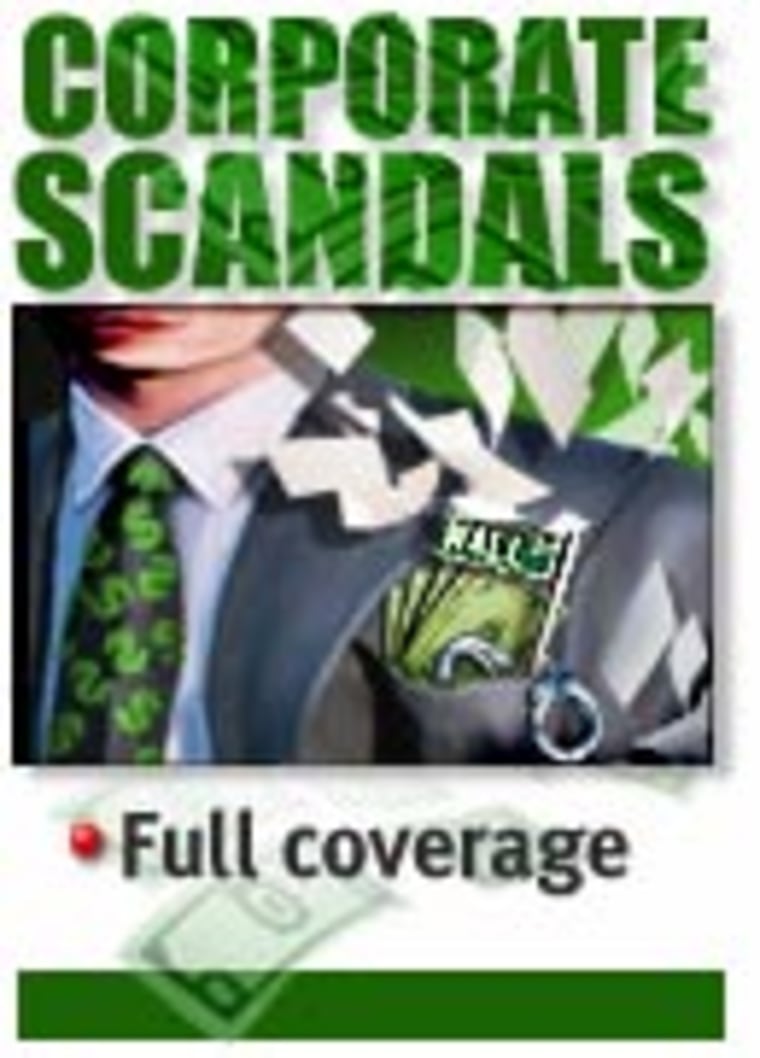The economy in 2002 found itself still addicted to the rarified air of stratospheric investment returns of the last decade. Like an alcoholic after a ten year bender the economy finally hit bottom this year and is now struggling with recovery. And in the process, the U.S. economy took on all the earmarks of the classic dysfunctional family.
YOU’VE PROBABLY SEEN the players in this dysfunctional drama at your holiday dinners: hapless, interventionist-prone parents, played here by the current administration and federal regulatory agencies. The tortured older siblings, straining at the harness to prove themselves while trying to hide addictions to various ills and evils, played here by America’s corporations and the officials that run them. And the floundering and bewildered younger children, seeking their way and confused at every turn, played here by you and me, the small investor.
Oh, I almost forgot Uncle Charlie! You know, that eccentric uncle that neither side of the family ever publicly claims as their own kin. The one that after a few too many hits of the eggnog loudly proclaims he has an inside track on the “next big thing.” Yeah, him. Well, in this year’s drama Uncle Charlie is being played by a host of Wall Street stock analysts.
Despite the steady rain of bad news, consumers continued to spend. They did so even as they looked over their shoulders and across the street at neighbors that no longer left for work in the morning, as unemployment figures kept mounting. The spending is a particularly dumb-founding statistic given that consumer confidence is sagging lower than a basset hound’s belly after a Fourth of July barbecue.
So step back through the financial mine field we called “the business landscape” for a look at the ten biggest business stories of 2002, in no particular order.
ECONOMIC ANGEL
A bright spot for the economy this year was that it had an angel riding shotgun in the form of the residential real estate market. Prices for homes continued to rise, so much that pundits began to worry out loud about whether the housing market is ripe for a bubble bursting of its own a la the dot-com crash of the late 1990’s. A companion story here is mortgage rates, which haven’t been this low since JFK was in the White House. With rates so low, homeowners flocked to refinance their mortgages in such numbers that some lenders had trouble keeping up with the paper work. The wave of refinancing not only lowered monthly mortgage payments but helped lubricate a rusting economy as homeowners pulled cash out of the equity in their homes and used it to feed their spending habits. However, instead of dumping dumb money into some profitless Internet company’s stock, consumers loaded up the Chevy Tahoe and spent their cash at local department stores.
WE CAN’T DANCE
You gotta love it when hype meets reality as was the case this year when the promised synergy between America Online and Time Warner failed to float this ailing, alien hybrid of old and new media. When the companies merged, AOL itself was worth $200 billion; now the combined companies are worth roughly $100 billion and the stock price has nose-dived some 70 percent. The Justice Department is all over the AOL side of the company looking into certain accounting practices. The company is restating two years worth of earnings based on its own internal investigation of how some ad revenues were booked. And the number two man at AOL, whiz kid Robert Pittman, was forced to resign as a result of the dust up. The internal squabbles and bumbling revenue reporting have pundits wondering whether the corporate marriage will endure; some are already predicting a split sometime next year if the financial picture doesn’t dramatically improve.
CEOS IN CUFFS
Corporate officers are known for a lot of things but making a fashion statement isn’t usually one of them. You wouldn’t have known that this past year.
In 2002 we were treated to a televised parade of high level corporate chiefs being led off in stainless steel handcuffs thanks to twenty-four-hour news channels and saucy three-minute in-depth stories on the network news. And it’s not as though the likes of 77-year-old John Rigas, founder of the bankrupt cable company Adelphia, was a dangerous Dillinger-type gangster.

Rigas and other family members — also led off in cuffs — simply drove the company into the ground by skimming off a couple billion from the bottom line for personal use. But the cuffs made an impressive show for the public, an image beleaguered government regulators desperately wanted in an effort to show they were being effective.
HAPLESS FED IN BOTTOMLESS ECONOMY
The Federal Reserve has lowered interest rates so many times in the past two years that the Fed chiefs are beginning to feel like Davy Crockett at the Alamo, out-numbered and out of ammo. With interest rates at historic lows, the Fed has just about fired all its fiscal bullets. But for all the good the Fed has done by lowering interest rates, it might as well have been firing blanks. And now, after having held hands with “the possibility of inflation” for years, the Fed is now tossing around the term “deflation” and desperately wondering if it can keep its powder dry in case it needs to lower rates, yet again, next year.
GUT BUSTER

Not since Elliot Ness rolled through Chicago busting up oak barrels filled with illegal booze has a prosecutor terrorized a single group of people as New York’s Attorney General Elliot Spitzer has Wall Street. Blessed with an ample budget and bulldog staff, Spitzer found himself in a unique position to bank his political currency and kick the snot out of whimpering Wall Street firms for having defrauded the public for nearly a decade. Spitzer’s unilateral crusade against Wall Street’s analytical hi-jinks unearthed page after page of smoking gun e-mails in which celebrity Wall Street analysts were caught speaking — or more correctly, typing-out of both sides of their mouths, deriding the pathetic fundamentals of particular companies in private while touting them publicly to the investing public. Spitzer’s investigations squeezed millions from Wall Street firms and put pressure on federal regulatory agencies to jump on board with their own investigations.
A STAR FALLS ON HIS FACE
Former Salomon Smith Barney all-star analyst Jack Grubman became the poster boy this year for all boot-licking investment firm employees more concerned with seven figure salaries and bonuses than they were with fairly evaluating a company’s financial health for their firm’s clients. Grubman even tried to use his all-too-chummy insider connections to corporate officers to try and strong arm a tony midtown Manhattan pre-school into accepting his toddler’s application for enrollment. I guess his purported $20 million salary wasn’t enough to simply buy his kid’s way into the program. Grubman resigned from his firm late in the year, shuffling out of the limelight, his tail between his legs and millions in severance pay in the bank.
DON’T SHRED FOR ME
It was the stuff of B-grade detective movies: company employees being forced to work overtime stuffing possibly incriminating documents into a rented industrial shredder. But truth is stranger than fiction and Arthur Andersen, once one of the nation’s most respected accounting firms, was found guilty of obstruction of justice for shredding documents related to the Justice Department’s investigation of the Enron scandal. The guilty verdict was essentially a death sentence. Arthur Andersen as an accounting firm ceased to exist.
BANKRUPTCY BONANZA
My how the mighty have fallen. Companies filed for bankruptcy faster than investors could pull money out of equities and put it into money market funds. WorldCom rocked the financial world by filing the biggest bankruptcy in U.S. history, having to eventually restate $7 billion-plus in revenues. Global Crossing went belly up, Kmart joined in as did Adelphia and United Airlines and on and on.
‘ZEUS’ IS DETHRONED
When ousted Securities and Exchange Commission Commissioner Harvey Pitt was testifying during his Senate confirmation hearings a few Senators dubbed him as the “Zeus” of his chosen field: securities law. Pitt had the resume, the connections and the intelligence to bring some real teeth to the SEC. In fact, the SEC has filed a record number of enforcement actions during his watch. But that couldn’t save Pitt from his political blunders. Early on, he pushed for a salary increase and elevation of his agency to cabinet level status and was nearly laughed out of Washington. Later he failed to tell the White House that William Webster, the former FBI director, picked to head a congressionally mandated accounting oversight board had been on the board of directors of a company that itself was under investigation for accounting problems. It was the last straw for a White House that felt continually stung by the ineffectual Pitt; he pulled the plug on his job by submitting his resignation after the polls closed on election night.
SHOW ME THE MONEY
The stock market is at five-year lows. The benchmark Dow bounced off the bottom twice this year. The market’s become a kind of sickening roller-coaster ride that has left investors spooked and seriously wondering if stuffing cash in the mattress isn’t just a plain good ol’ fashioned idea instead of a funny story Uncle Jack tells every Thanksgiving about how grandma managed to save money during the Depression. For good or for ill, the stock market has become a proxy for the financial health of the nation. So many of us jumped into the market with both feet during the ’90s and the water felt great as we racked up 20 percent or higher returns on our “investments.” Now the water is freezing and most of us are clinging to any kind of financial life vest we can, even if it’s that’s 1 percent money market account at the local bank. Yeah, happy New Year… I wish.